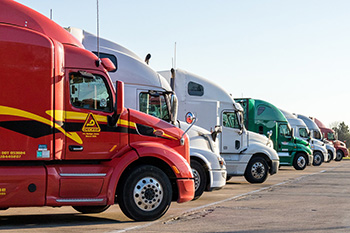National Transportation Center at UMD
About NTC
The National Transportation Center @ Maryland (NTC) is one of only five National Centers that were selected in this nationwide competition and the only one with a focus on the U.S. Department of Transportation (DOT) strategic goal of “Economic Competitiveness”. The University of Maryland (UMD) consortium includes:
-
Louisiana State University (LSU)
-
Morgan State University (MSU)
-
North Carolina State University (NCSU)
-
Old Dominion University (ODU)
-
University of New Orleans (UNO)
The National UTC aims to promote strategic transportation policies, investment, and decisions that bring lasting and equitable economic benefits to the U.S. and its citizens.
Center Theme
The theme of the Center is “Strategic Transportation Policies, Investments and Decisions for Economic Competitiveness”. The Center will conduct research and provide education and technology transfer related to this theme, and will directly support the US DOT’s strategic goal of economic competitiveness with consideration for other relevant strategic goals such as safety and environmental sustainability.
 Center Scope
Center Scope
The Center is concerned with the integrated operations and planning of all modes serving the nation’s passenger and freight transportation system, including the institutional issues associated with their management and investments. A balanced multi-modal approach will be used that considers freight and passenger travel mobility, reliability, and sustainability, as well as system operations during periods of both recurring and non-recurring incidents, including response to major emergencies. The modes in this theme include highway, transit, rail, and inter-modal interfaces including ports, terminals and airports. In particular, the Center will focus on research, education, and technology transfer activities that can lead to (1) Freight efficiency for domestic shipping and for our international land, air, and sea ports; (2) Highway congestion mitigation with multi-modal strategies; and (3) Smart investments in intercity passenger travel facilities such as high speed rail.
Center Activities
-
Advanced & Applied Research Promoting Economic Competitiveness
Our research activities are multimodal/intermodal and multidisciplinary in scope, with the aims of addressing nationally and regionally significant transportation issues pertinent to economic competitiveness and providing practice-ready solutions. Through in-person workshops and webinars, the member universities have identified a large number of candidate research projects with multi-university participation for the Center. These research activities build on our existing strengths and also explore important emerging data sources, technologies, and methods. -
Education, Workforce Development, Technology Transfer, & Diversity
The consortium is committed to providing high-quality transportation education and workforce development programs for a broad and diverse audience. Our members have an outstanding track record of success sharing expertise and research results with local, national, and international audiences for use in real-world applications and are committed to building on these accomplishments through strong partnerships. The majority of the Center activities on education, workforce development, technology transfer, and diversity build on our past experience and current strengths in these areas. Our efforts will support the development of a critical transportation knowledge base and a transportation workforce that is prepared to design, deploy, operate, and maintain the complex transportation systems of the future.
Center Strengths and Collaboration
The University of Maryland and the other six consortium universities are internationally known for outstanding transportation research programs in its engineering, as well as for strong research programs in related areas such as computer science, economics, urban studies, public policy, and management. The consortium universities also have strong track records in educating the next-generation workforce, promoting career development of new leaders, disseminating research results, and providing solutions to significant problems in the field of transportation.
Collaboration is necessary to solve critical transportation challenges and gain the most transportation-related economic benefits. The seven universities, led by UMD, have formed this consortium to capitalize on our complementary strengths in key topics areas for economic competitiveness. The member universities have decided to form this consortium to ensure the consideration of unique transportation problems pertinent to economic competitiveness in different regions of the nation; among various population and ethnic groups; across rural, small urban, and large urban areas; and with a variety of transportation facility types.
The diversity of the member universities and their local and regional transportation problem should lead to center activities that produce equitable transportation-related economic benefits to the nation and its citizens. The researchers at the member universities have collaborated previously and will continue to collaborate on a number of research, education, and technology transfer projects.
Conferences, Symposia, and Workshops
Training Workshop on Broader Economic Benefits of Multimodal Projects
Top